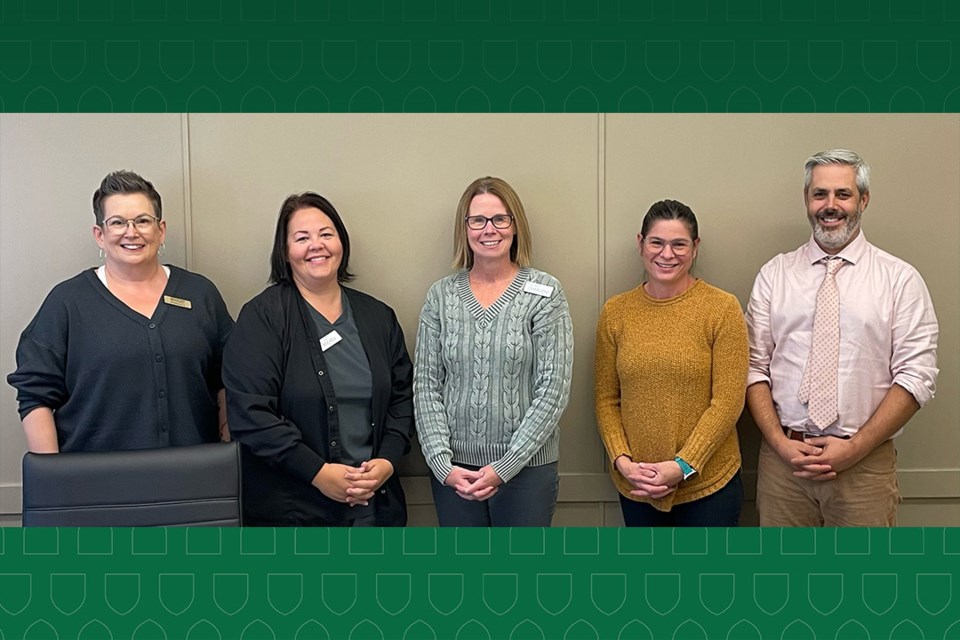CANORA — The town of Canora is supporting its rural older adults to live well by developing a local primary care memory clinic delivered by health providers in the community.
Kerilyn Anweiler, the primary health care manager in the region, said that Canora – like most rural communities – is experiencing specific rising needs.
“Based on demographic data, this area of the province has a high percentage of seniors,” she noted.
Many rural residents require care and support to diagnose and manage challenges related to memory, including Alzheimer’s disease and other dementias.
What Canora needed was a way to provide good clinical care for memory needs, without having to travel. Travel can be difficult for older adults and adds extra stress.
“The memory clinic will help us provide clinical care closer to home, for the patients and their families,” Anweiler explained.
The best way to care for patient memory concerns is with a team approach, where the team includes local providers such as pharmacists, doctors, nurse practitioners, home care nurses, physical therapists, and other health professionals. But how should a community connect and build such a team?
That’s when Anweiler and her colleagues reached out to the University of Saskatchewan (USask).
The Canadian Centre for Rural and Agricultural Health (CCRAH) at USask hosts the Rural Dementia Action Research program, known as RaDAR. The program has been a leader in supporting rural communities to develop local team-based memory clinics, like the one Canora was looking to develop.
“There are other RaDAR clinics in the southeast area of Saskatchewan, and we started to explore the potential of bringing this to Canora and area,” Anweiler said.
Anweiler and her colleagues had initial discussions with CCRAH RaDAR lead Dr. Debra Morgan (PhD) and team member Dr. Julie Kosteniuk (PhD).
Kosteniuk explained that the key to RaDAR memory clinic success lies in the community.
“The presence of local champions is important for establishing a local memory clinic, including other health care providers who are keen to be involved,” she said.
The Canora RaDAR clinic is led by a physician and nurse practitioner, both of whom Kosteniuk describes as “strong champions for older adult care.” As part of the RaDAR clinic orientation, the Canora team received specialized training from the RaDAR team, including Dr. Dallas Seitz (MD), a geriatric psychiatrist at the University of Calgary. They also spent time shadowing at the established Esterhazy RaDAR memory clinic.
Ongoing support from Saskatchewan Health Authority management and the Alzheimer Society of Saskatchewan is also essential. Every team includes a First Link Program co-ordinator from the Alzheimer Society of Saskatchewan.
RaDAR memory clinics wrap the services needed and available around the patient, instead of the other way around. A RaDAR memory clinic in one community might look slightly different than another, depending on the available complement of health professionals.
One point really makes a RaDAR rural memory clinic stand out. Anweiler explained, “the patient and family are key members of the team.” As the centre and focus, it’s the patient’s and family’s needs that define the path.
The CCRAH RaDAR program has created key supports for the rural care teams. These supports include opportunities to shadow other clinics, extensive ongoing consultation with training and mentorship, a co-ordinator who travels to every clinic, plus a handbook with useful resources including templates to guide team members through the assessment process.
The first RaDAR clinic took place in Canora in early October. Anweiler said the goal is to offer these team-based wraparound RaDAR memory clinics once a month.
“As we expand our primary health care clinics and services available for patients close to home, the addition of this clinic will support those with memory challenges and the elderly population in Canora and area.”




